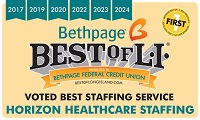The Nursing Shortage
Nursing is a career path that has evolved over the past few years and will continue to change in the future. There has been an evident rise in this career, yet there has been a nursing shortage issue lingering in the healthcare industry. It has been predicted that about one million Registered Nurses will retire by the year 2030; making the nursing shortage more serious. And this problem will inevitably impact the functioning of medical facilities. But what exactly is the nursing shortage, and what is causing it? In this blog, I will discuss the issue in more depth.
Cause
By definition, the nursing shortage “refers to a situation where the demand for nursing professionals, such as Registered Nurses, exceeds the supply—locally, nationally or globally.” The lack of adequate staffing is also putting pressure on the role of a nurse. This often leads to nursing burning out quicker and being unhappy with their role. One issue has had a complete domino effect in the field of healthcare. The root of the nursing shortage is the aging population in America. The baby boomer generation is now reaching the point in their lives where they are retiring. Also, the passing of many boomers with age or diseases and disorders is opening up many jobs that are unable to be filled immediately. The elderly population generally needs more medical attention, and therefore aren’t able to continue to work.
Another important factor influencing the employment of nurses is the lack of proper training and education. American Association of Colleges of Nursing has reported that in the school year of 2016-2017, schools turned away about 64,000 qualified nursing applicants because there was a lack of classroom space, funding, and an insufficient faculty. So nurses are graduating from accredited programs, but there are a limited amount of resources that can help them develop the skills needed to work within a medical setting. The population that is highly experienced in nursing is retiring and there aren’t just enough training opportunities for new nurses.
Effect
Furthermore, the nursing shortage has caused a lot of stress in the lives of existing nurses. The nurse-to-patient ratios are not in order which is a result of the unit being short-staffed. This causes many nurses having to pick up extra shifts which eventually affects their personal life and well-being. A nurse working for a post-acute facility or a hospital has a certain amount of hours they have to work within a month, whether they are during the day, night, or weekends. And if another nurse on duty calls out, the person working before them is asked to stay to cover the shift. A nurse doesn’t have a lot of control over their work schedule.
As mentioned before, nurses are being asked to work so much that results in burnout. Nurse burnout is a good enough cause to want to leave the profession once in for all. Not only is the nursing shortage affecting the staff itself, but it also has an impact on the care being provided to the patients. The quality of patient care should be the most important thing to maintain. If the role of a single nurse is being stretched so thin, likely, he/she will not be able to carry out day-to-day activities efficiently.
Solution
To make the shortage less of a problem in healthcare, it’s important to be more focused on the new and upcoming generation of nurses. The first step would be to establish a career for new graduates. The next generation of nurses is the ones that will comprise a majority of the nurses in hospitals and other facilities. More colleges should adopt an accredited nursing program to meet the demand of the students pursuing the field. Proper training and education need to be provided to the thousands of students who have a passion for nursing.
Medical facilities should also have a special program that has incentives for future generations to choose nursing as their career path. For a more immediate solution, there are ways that the nurse burnout can be reduced. This can be achieved by changing internal policies for productivity, utilizing other staff members effectively, and incorporating better use of technology.
Moreover, hospitals and other facilities can avoid burning out their staff members by implementing proper staffing methods. One effective way is to work with a staffing agency that can assist in recruiting well-qualified nurses. Horizon Healthcare Staffing is an employment agency that ensures its clients will be connected with healthcare professionals that are the best fit for their work environment. If more medical facilities worked with agencies, the nursing shortage can see a turnover.
In conclusion, the nursing shortage is an issue that is going to be a rising problem in the United States. Although it is an inevitable problem that will be faced by many facilities, steps can be taken to lessen the pressure. If the healthcare industry starts supporting the nursing labor force now, the nursing shortage can become an issue of the past.


